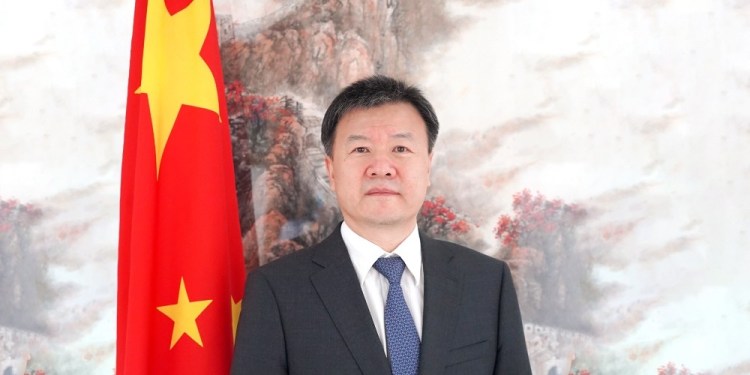On April 22, at the invitation of US President Joe Biden, Chinese President Xi Jinping attended the Leaders Summit on Climate via video link and delivered an important speech entitled For Man and Nature: Building a Community of Life Together. Upon a profound reflection over the intensified exploitation of natural resources since the start of the industrial civilization, Xi pointed to the growing tensions in the Human-Nature relationship and called upon the international community to jointly deal with climate change. His statement is of great practical significance for the sustainable development of the whole mankind and the Earth’s eco-system.
President Xi’s core message of a community of life for man and Nature can be summed up as ‘six commitments’.
We must be committed to harmony between man and Nature. Mother Nature provides everything essential for humanity to survive and thrive. Mankind must respect and protect Nature and follow its laws rather than acting against those laws. We should protect Nature and preserve the environment like we protect our eyes, and endeavor to foster a new relationship where man and Nature can both prosper and live in harmony.
We must be committed to green development. Green mountains are gold mountains. To protect the environment is to protect productivity, and to improve the environment is to boost productivity. We must say no to shortsighted approaches of going after near-term development gains at the expense of the environment. We need to let the power of innovation drive us to upgrade our economic, energy and industrial structures, and make sure that a sound environment is there to buttress sustainable economic and social development worldwide.
We must be committed to systemic governance. We need to follow the innate laws of the ecosystem and properly balance all elements and aspects of Nature. Protecting the ecosystem requires more than a simplistic, palliative approach.
We must be committed to a people-centered approach. The environment concerns the well-being of people in all countries. We need to take into full account people’s longing for a better life and a good environment as well as our responsibility for future generations. We need to look for ways to protect the environment, grow the economy, create jobs and remove poverty all at the same time, so as to deliver social equity and justice in the course of green transition and increase people’s sense of benefit, happiness and security.
We must be committed to multilateralism. On issues of environmental governance, we need to work on the basis of international law, follow the principle of equity and justice, and focus on effective actions. Countries must join hands, not point fingers at each other; we must maintain continuity, not reverse course easily; and we must honor commitments, not go back on promises. President Xi said that China welcomes the United States’ return to the multilateral climate governance process. Not long ago, the Chinese and US sides released a Joint Statement Addressing the Climate Crisis. China looks forward to working with the international community including the US to jointly advance global environmental governance.
We must be committed to the principle of common but differentiated responsibilities. Developing countries now face multiple challenges to combat COVID-19, grow the economy, and address climate change. We need to give full recognition to developing countries’ contribution to climate action, accommodate their particular difficulties and concerns, and support them in financing, technology, and capacity building.
Since ancient times, the Chinese civilization has valued harmony between man and Nature as well as observance of the laws of Nature. We advocate that man should assist all things to follow the laws of Nature, thus realizing benign interaction and healthy development between man and Nature. China pays close attention to and is deeply involved in global environmental governance. Last year, President Xi attended a number of multilateral summits on environment and climate change, including the United Nations Biodiversity Summit, the Climate Ambition Summit and the Leaders’ Side Event on Safeguarding the Planet of the G20 Riyadh Summit. He announced that China will strive to peak carbon dioxide emissions before 2030 and achieve carbon neutrality before 2060. China has committed to move from carbon peaking to carbon neutrality in a time span much shorter than those in many developed countries. And we are confident and capable of achieving this goal.
China and Afghanistan enjoy a traditional friendship. Our two countries are both developing countries and geographically close to each other with frequent people-to-people exchanges. And both of us face many environmental problems. Beijing used to be one of the areas with more serious air pollution in China, with no blue sky for nearly half the year at its worst. But over the past decade, Beijing has taken systematic and intensive measures to clean up air pollution by promoting clean fuels, closing down heavily polluting enterprises and restricting the movement of motor vehicles. In 2020, the number of days with good air quality in Beijing reached 276, 100 days more than a decade ago; the number of days with the fine particulate matter (PM2.5) indicator marked as good or above reached 330, truly returning the blue sky to the people.
I have noticed that the Afghan government attaches importance to environmental governance and has taken various initiatives, such as improving the heating system of urban buildings and strengthening penalties for illegal operations. These have produced encouraging results. As a participant, contributor and leader in the development of global ecological civilization, China is ready to strengthen environmental governance cooperation, share advanced methods of air quality management and exchange experience in monitoring air and water quality with Afghanistan. We will work together to build a global environmental governance system that is fair, equitable and mutually beneficial. Let’s join hands to address global climate and environmental challenges and leave a clean and beautiful world for our future generations.













